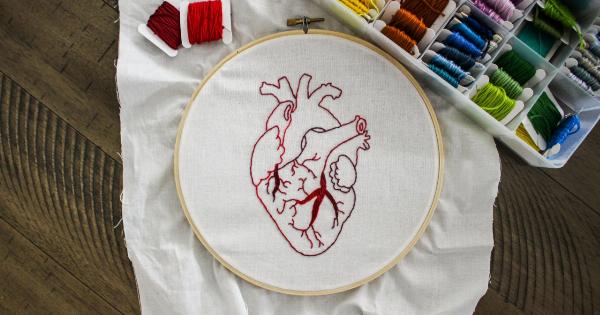Sleep is important for the overall well-being of an individual. It helps in enhancing productivity, metabolism, and mental health.
However, sleeping more than required can have adverse effects on the human body and increase the risk of heart diseases and stroke.
Study on the relation between sleep and heart diseases
A study conducted by Keenan A. Walker and his associates found that people who slept more than required had 1.5 times higher chances of developing heart diseases as compared to those who slept for the optimal duration.
The study analyzed the sleeping patterns of 66,000 individuals over a period of nine years. It was found that individuals who slept for more than 8 hours had a higher risk of developing coronary artery disease, stroke, and heart failure.
The impact of oversleeping on the cardiovascular system
Oversleeping can have various adverse effects on the cardiovascular system. The extra sleep can cause an irregular heartbeat, which may lead to arrhythmias, a condition where the heart beats too slowly or too quickly.
This may further cause fluttering, palpitations, and other symptoms of heart diseases. Furthermore, oversleeping can cause the build-up of fatty plaques in the arteries, which can lead to a blockage, restricting the flow of blood to the heart. This can cause heart attacks and strokes.
The role of genes in oversleeping
Genetics can play a role in oversleeping. The PERIOD3 gene, responsible for regulating the circadian rhythm of the body, can have variations that may lead to the individual needing more sleep than required.
Researchers have found that individuals with variants of the PERIOD3 gene had a higher tendency to sleep for longer durations and had a higher risk of developing heart diseases and stroke.
The impact of lifestyle on oversleeping
Lifestyle can also play a role in oversleeping. Individuals who lead sedentary lifestyles and do not exercise regularly have a higher tendency of oversleeping.
Furthermore, individuals who have depressive symptoms and other mental illnesses are prone to oversleeping. This can lead to a lack of physical activity and further increase the risk of heart diseases and stroke.
The optimal duration of sleep
The optimal duration of sleep depends on the age and overall health of the individual. The National Sleep Foundation recommends that adults between the ages of 18-64 years should sleep for 7-9 hours every day.
However, some individuals may require more or less sleep depending on their age and health conditions.
The dangers of undersleeping
Undersleeping can also have adverse effects on the body. It can cause a lack of concentration, irritability, and anxiety.
Furthermore, it can cause an increase in appetite, leading to weight gain and obesity, which is a significant risk factor for heart diseases and stroke.
Tips for a better sleeping schedule
To maintain a healthy sleeping pattern, an individual must follow a healthy lifestyle. Here are some tips for maintaining a good sleeping schedule:.
- Follow a sleep schedule: Try to sleep and wake up at the same time every day.
- Avoid caffeine and alcohol: Caffeine and alcohol can interfere with sleep patterns and lead to a lack of sleep.
- Exercise regularly: Regular exercise can help in maintaining a healthy sleeping pattern.
- Avoid large meals before bedtime: Large meals before bedtime can cause indigestion and lead to a lack of sleep.
- Create a relaxing environment: Make sure the sleeping environment is dark, quiet, and comfortable.
- Avoid using electronic devices before bedtime: The blue light emitted by electronic devices can interfere with sleep patterns.
Conclusion
Oversleeping can lead to a higher risk of heart diseases and stroke. It can cause an irregular heartbeat, build-up of fatty plaques in the arteries, and other adverse effects on the cardiovascular system.
However, undersleeping can also have adverse effects on the body. It is essential to maintain a healthy sleeping pattern to reduce the risk of heart diseases and stroke. Individuals must follow a healthy lifestyle and avoid oversleeping or undersleeping to maintain a healthy sleeping pattern.


























